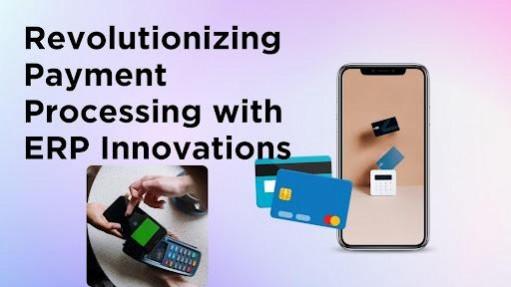
A New Era in Financial Automation is rapid evolution of payment processing has driven businesses to seek more efficient, accurate, and automated financial solutions. Desi Ramananda Kishore Katuri, a distinguished researcher in digital finance, sheds light on the transformative role of Enterprise Resource Planning (ERP) systems in modernizing financial transactions. His work explores how ERP-driven innovations optimize efficiency, reduce costs, and enhance security in payment processing.
Automating Invoices for Seamless Transactions
One of the most groundbreaking advancements in ERP finance is automated invoice processing. Traditional manual invoicing is prone to errors, delays, and inefficiencies. Modern ERP systems integrate Optical Character Recognition (OCR) and machine learning algorithms to streamline invoice handling. These systems can process over a thousand invoices per hour while maintaining accuracy rates above 98.5%. By reducing invoice exception rates from 23% to just 2.8%, organizations experience significant cost savings and operational efficiency.
Intelligent Payment Scheduling for Financial Stability
Late payments and cash flow inconsistencies can disrupt businesses, but ERP-driven intelligent payment scheduling offers a robust solution. Advanced algorithms optimize payment timings, reducing late payment penalties by 45% and improving on-time payments by 78%. By leveraging real-time cash flow insights, these systems enhance working capital management and mitigate currency exposure risks, reducing foreign exchange losses by up to 57%.
Real-time Reconciliation: A Game Changer in Accuracy
Financial reconciliation has traditionally been a time-consuming process fraught with errors. AI-powered reconciliation engines within ERP systems have revolutionized this task, reducing manual reconciliation efforts by 85% and improving accuracy rates to an impressive 99.7%. Automated reconciliation not only minimizes errors but also speeds up the resolution of transaction discrepancies, cutting exception handling time by 73%.
Strengthening Security in Payment Processing
With cyber threats on the rise, ERP finance systems have integrated cutting-edge security measures to safeguard financial transactions. Role-based security frameworks have led to a 94% reduction in internal security incidents. Multi-factor authentication (MFA) has proven to be a game changer, reducing unauthorized access attempts by 71%. Additionally, real-time security audits have significantly enhanced vulnerability detection, improving overall system integrity.
The Future: Blockchain and AI-Driven ERP Solutions
The next wave of ERP innovation is centered around blockchain integration and AI-driven financial analytics. Blockchain-enabled ERP systems have demonstrated a 91% reduction in settlement times for cross-border transactions, enhancing transparency and regulatory compliance. Smart contracts further automate financial agreements, reducing execution times by 67%. Meanwhile, AI-powered predictive analytics enhance financial forecasting accuracy by over 76%, empowering businesses to make data-driven decisions.
Additionally, these integrated systems facilitate real-time audit trails, dramatically reducing fraud risk while streamlining regulatory reporting. Cloud-native ERP solutions with embedded blockchain capabilities are experiencing 124% year-over-year adoption growth, particularly in financial services, manufacturing, and supply chain sectors. Organizations implementing these technologies report 38% improvements in operational efficiency and significant cost reductions through elimination of traditional reconciliation processes.
Cloud-Native ERP: The New Standard in Scalability
As businesses expand, scalability becomes a crucial factor. Cloud-native ERP solutions provide unparalleled flexibility, with organizations achieving up to 56% cost savings in infrastructure maintenance. These systems offer near-instantaneous scalability, handling transaction spikes of up to 400% without performance degradation. Enhanced cloud security frameworks also contribute to a 93% reduction in security incidents, reinforcing trust in cloud-based financial management.
In conclusion The transformation of payment processing through ERP finance systems marks a significant milestone in digital finance. By automating key financial operations, improving security measures, and integrating emerging technologies like blockchain and AI, ERP solutions are setting new benchmarks in efficiency and reliability. Desi Ramananda Kishore Katuri highlights how these advancements are paving the way for a future where financial operations are not just automated but intelligently optimized for superior performance.
















